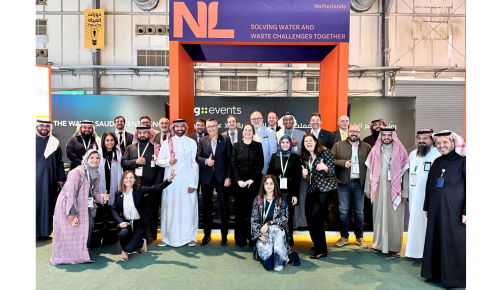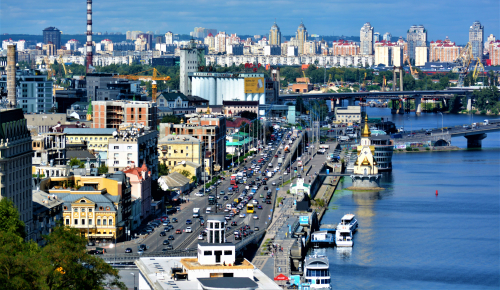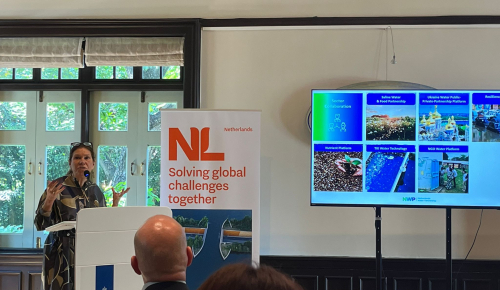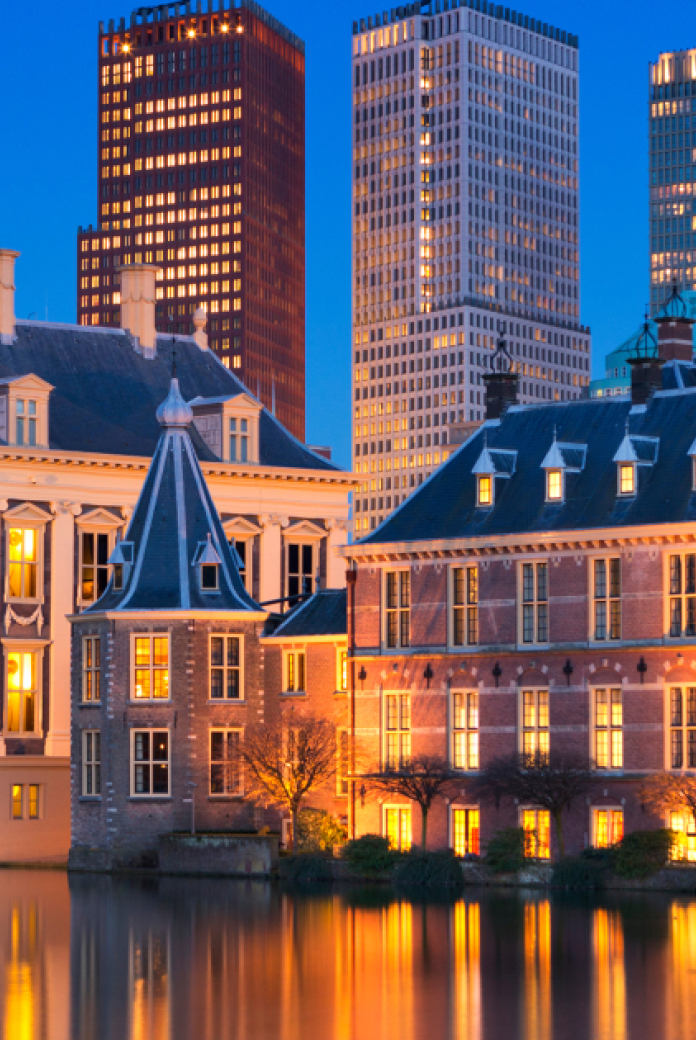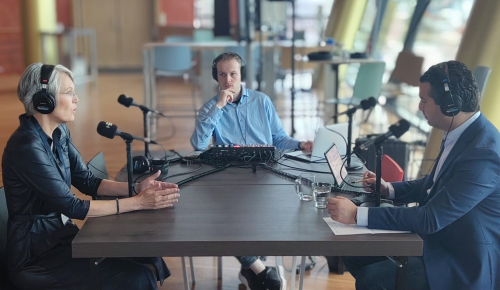News
4 August 2025From party to prototype: Festival grounds as labs for future-proof water solutions
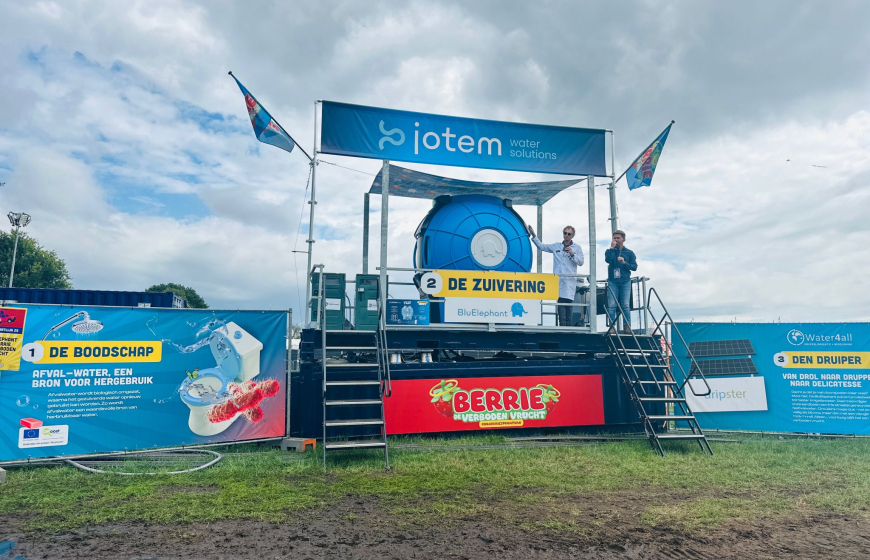

Droughts, extreme rainfall events, and growing pressure on drinking water supplies – the climate crisis presents complex water challenges for societies worldwide. An unexpected setting brings these challenges into sharp focus: festivals. From 17 to 20 July 2025, the Dutch Zwarte Cross festival served as a testing ground for innovative and circular water management. It was part of the WijWater project: a collaborative initiative between Zwarte Cross, the Dutch Government, and partners from the water sector. With strong contributions from NWP members including Jotem Water Solutions, MTD, Nijhuis Saur Industries, Royal Eijkelkamp, and the water authorities Rijn en IJssel and Vechtstromen, the project brought together technical expertise, field experience, and policy insight. It offers valuable, real-world lessons for water resilience in urban areas, agriculture, and industry alike.
Attracting 275,000 visitors each year, Zwarte Cross – a motor cross, music, theatre and stunt festival – consumes significant volumes of water for showers, toilets, drinking, and cleaning. The resulting wastewater is a heavy burden for the local infrastructure. In 2018, the regional water authority concluded that it lacked the capacity to process the festival’s peak loads effectively. This led to the first water-saving interventions in 2019: vacuum toilets and switching from drinking water to surface water for flushing.
Additionally, the European Water Framework Directive (WFD) mandates that wastewater treatment facilities must meet significantly stricter discharge standards by 2027. This combination of urgent regulations and operational bottlenecks prompted the launch of the WijWater (literally we water) project in 2024. The project transformed the festival site into a four-day ‘mini society’ in which sustainable and circular water solutions are tested. Water is purified, stored, and reused on-site.
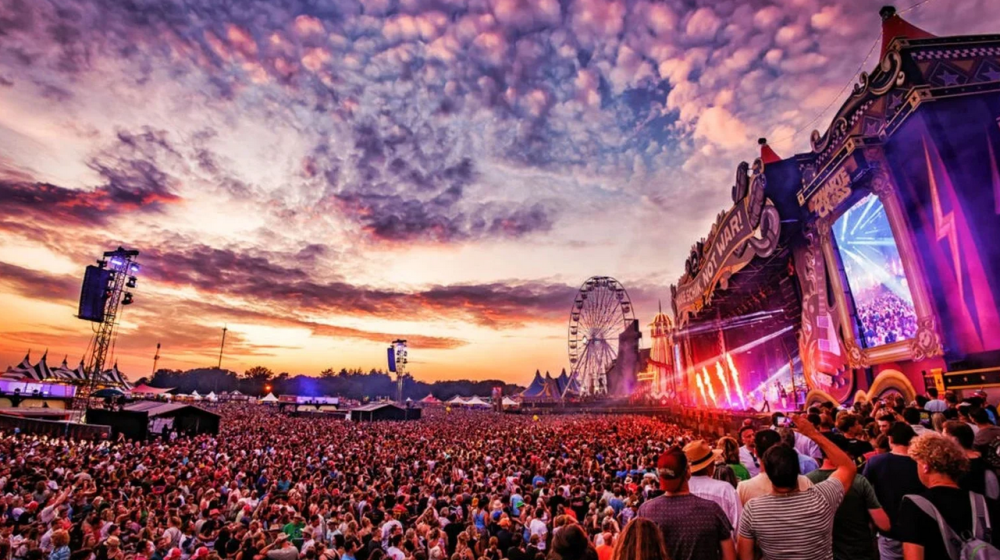
Zwarte Cross’ innovative water solutions
In 2024, water quality took centre stage at Zwarte Cross. In 2025, the focus shifted to water availability and management. The festival acted as a testing ground for a broad range of innovations.
- On-site wastewater treatment
The BluElephant – an innovative mini-treatment unit – was installed to purify wastewater biologically using activated carbon, UV light and filtration. The treated water was clean enough to irrigate strawberries grown on-site. It was then discharged safely into the soil or a nearby creek. The BluElephant was designed, developed and financed in a public-private partnership between NWP members Jotem water solutions and Waterschap Vechtstromen, and Saxion University of Applied Sciences, Ministry of Defence and World Waternet.
- On-site groundwater purification
Groundwater was also treated using the BluElephant. It produced safe drinking water directly on-site. On the festival’s opening day, visitors enjoyed a symbolical toast with glasses of freshly purified water.
- Water-saving technologies
The festival used vacuum toilets, PowerShowers (which reduce water use by up to 90 percent), and surface water for flushing toilets.
- Smart drainage
Researchers tested a smart drainage system beneath the festival grounds. This innovation enables rainwater to be drained or retained depending on weather conditions, supporting drought resilience and flood prevention.
- The ‘Glasbak’
Another research project was the ‘Glasbak’: an underground rainwater buffer that stores water for dry periods or in case of water extraction restrictions.
- Urine as fertiliser
Specially designed unisex toilets collected urine which was processed into ammonium sulphate – a valuable fertiliser for agriculture. Around 60,000 litres of urine were converted into 11,000 litres of fertiliser. It was enough to grow approximately 38,000 kilograms of potatoes. Hypothetically, these could be sold at the festival as chips – a striking example of a closed loop. ’This way, we close the loop,” explains William Hendriksen of NWP member Nijhuis Saur Industries. In parallel, the project team also investigated the presence of pharmaceutical and drug residues in the urine, aiming to remove as many of these substances from the water as possible.
- ‘Mestzak City’
The ‘Mestzak City’ system was deployed again following its success in 2024. This smart buffering solution temporarily stores up to three million litres of wastewater which will gradually be discharged over time. This solution reduces the impact on the local treatment facility.
These innovations and experiments made Zwarte Cross a living laboratory for circular water management. Its ultimate goal is to create an entirely closed water cycle on the festival site.
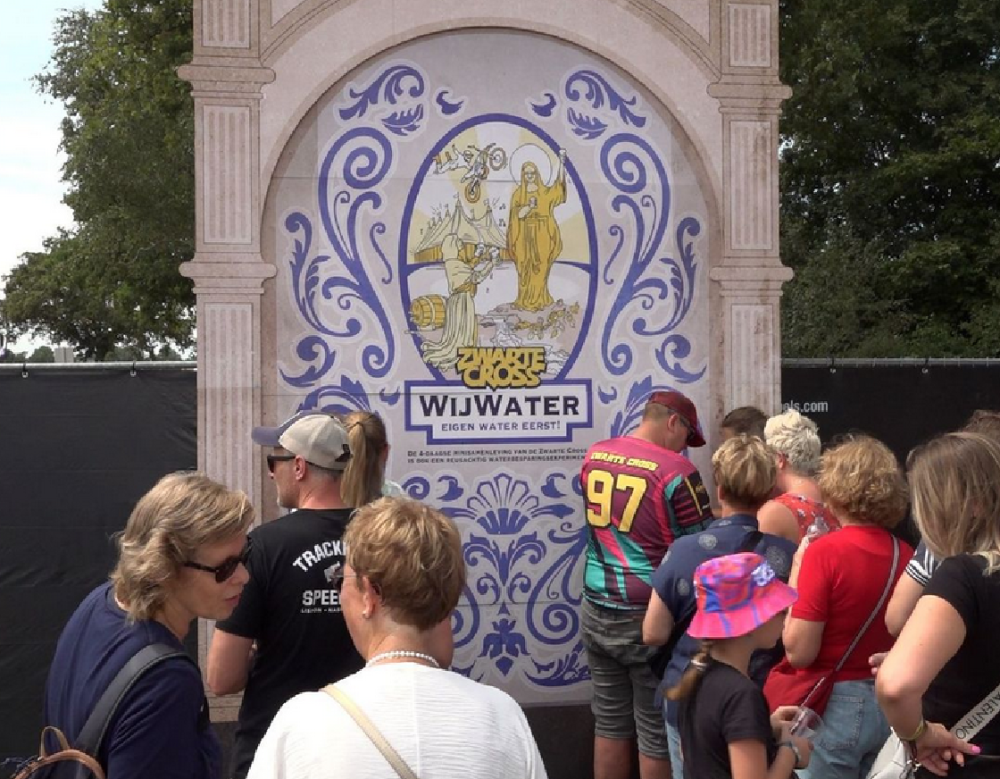
Dutch innovation and European collaboration
The WijWater project exemplifies Dutch innovation and collaboration in the water sector. Zwarte Cross works with 19 dedicated partners: Green Deal Circular Festivals; the Vitens drinking water company; the Rijn en IJssel and Vechtstromen water authorities; the Ministry of Infrastructure and Water Management; Samenwerking Water Achterhoek+; the Municipality of Oost Gelre; NieuWater; De WaterBank cooperative; De Twentse Golf; Waterstromen; Water4All; Altop Products; Bronbemaling.com; Feestfabriek Alles Komt Goed; Jotem Water Solutions; Nijhuis Saur Industries; Royal Eijkelkamp; and MTD. They combined technical expertise, policy, and operational capacity.
The 2024 pilot also marked the start of a multi-year collaboration under the Green Deal Circular Festivals (GDCF). This European cooperation brings together frontrunners from the festival industry to accelerate the transition to circular and climate-neutral events. Facilitated by the Dutch Ministry of Infrastructure and Water Management, the GDCF promotes collaboration, knowledge exchange, and scalable solutions. Participating festivals commit to developing sustainable practices, inspiring their visitors, and serving as examples for the broader events sector.
Festivals as ‘Windows to Society’
The Zwarte Cross exemplifies that festivals are more than just cultural gatherings. They function as miniature societies where all key systems converge: water, energy, food, waste, human behaviour, and technology. With their diverse audiences, temporary infrastructures, and intense usage, festivals are a realistic testbed for sustainable solutions. Their temporary nature allows innovations to be implemented and adjusted quickly. Simultaneously, direct interaction with visitors provides valuable real-time feedback.
Festivals also reach audiences that are often harder to involve in public research. They can be spaces for experimentation and help make complex challenges tangible. This makes festivals powerful platforms for societal innovation and systems change. They are a valuable model for how cities and regions can address sustainability and climate adaptation.
The WijWater project delivered important insights in 2024, concluding that events can serve as a bridge between regulation and innovation. For festival organisers, circular water systems are essential for long-term resilience. For governments, festivals can function as living labs for policy application. And for businesses, they provide realistic conditions for testing technologies with the potential for upscaling in urban, agricultural or industrial settings.
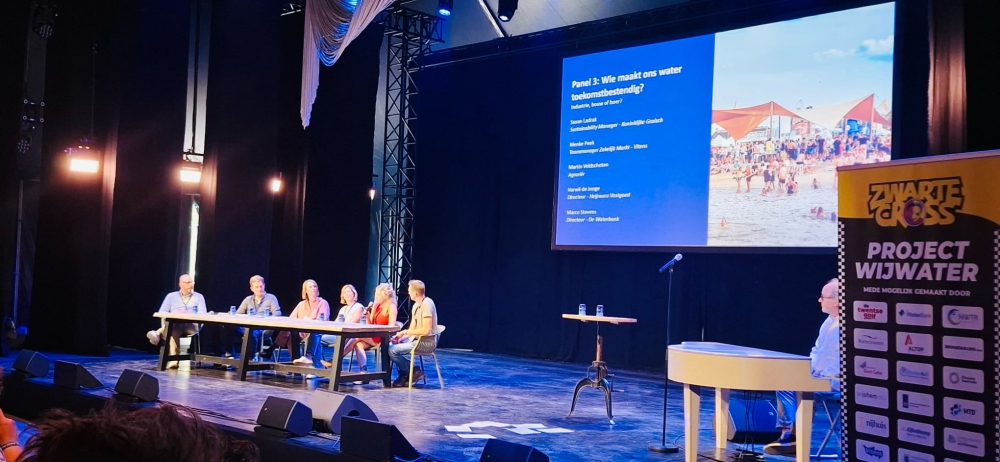
Knowledge sharing and next steps
The lessons learned are actively shared with other festivals, municipalities, and water authorities – both nationally and internationally. National examples include initiatives like the DGTL festival and SAIL in Amsterdam, and Decibel and Awakenings in North Brabant. The goal is clear: what works at Zwarte Cross can work elsewhere – not only at festivals, but also in cities, farming regions, and industry.
Want to learn more about the lessons from WijWater?
A report (in Dutch) on the WijWater 2024 project highlights key takeaways for scaling circular water systems at events. Download the report here.
Featured NWP members: Jotem Water Solutions, MTD, Nijhuis Saur Industries, Royal Eijkelkamp, Waterschap Rijn en IJssel, Waterschap Vechtstromen
